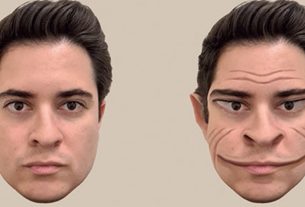How can a person with a severe brain injury play chess? What does eye movement teach us about the likelihood of developing Parkinson’s disease? When will the family doctor know to tell us that next month we will be in pain? And can a robot pass a specialty exam written for a human?
Two years ago, President Isaac Herzog awarded the organization and Erblich the President’s Volunteer Award. He sent his blessing to the participants of the conference and said: “There is a clear connection between the capabilities of the Israeli healthcare system and the commitment to innovation and creativity. This is the principle under which Lema’anchem operates for the sake of over 20,000 patients every year. In recent months, you have demonstrated this even more strongly when you stood by the side of wounded IDF soldiers and victims of the October 7 massacre.”
Will AI replace doctors?
Moreover, Balicer revealed that recent studies prove that computers are not only more accurate and “professional” than doctors and nurses, but are also perceived by patients as more empathetic than them. He rhetorically asked, “Is this the future we want to see?” and clarified immediately, “I believe strongly in human touch.”
Prof. Yossi Matias, Global VP of Google and CEO of Google’s Research and Development Center in Israel, added that the healthcare sector has the greatest potential for groundbreaking AI applications, and the organization is making enormous efforts in developing innovations that will bring this potential into action. He revealed that a model developed by Google has passed a US physician certification test with a score of 85.
Prof. Amnon Shashua, president and CEO of Mobileye, described the significant leap that AI has made recently. “The question being debated in academia today is whether this student, artificial intelligence, who continues to learn all the time and solve problems, can be a great knower, a great scientist, or a great philosopher,” he said. “A year ago I would have said that we need another scientific revolution. The surprise of the past few months is that in my opinion, we no longer need such a revolution. In the coming years, there will be systems that can solve problems that a few experts can solve, and in the future they will be able to solve problems that no human can solve.”
“Unfortunately, the ministry prefers to solve the problem externally and opts for the easy solution of online service with foreign doctors,” he argued. “How can a psychiatrist from New Zealand identify with someone who experienced the October 7 disaster here and treat them through a computer?” He asked



